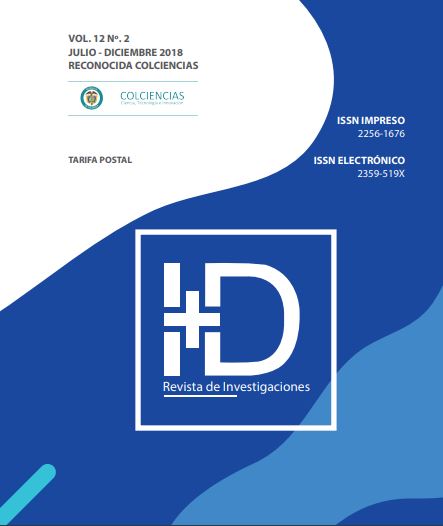Analysis of Owenian cooperativism as a vision of social responsibility
DOI:
https://doi.org/10.33304/revinv.v12n2-2018007Keywords:
Humanism, cooperation, capitalism, social responsibility.Abstract
The advent of the industrial revolution brought with it the super exploitation of resources and an exaggerated control of the means of production (land, labor and capital). It was during these eighteenth, nineteenth and early twentieth centuries that the administration as a social science acquires its strength not only to understand how partnership and cooperation - natural processes in the human being - are combined to achieve objectives that individually do not They could have developed, but also identifies principles that must be taken into account so that the material and immaterial structure of an organization reaches its primary objectives without a waste and waste of resources. Against this issue emerges a weigher at the beginning of the nineteenth century (Owen), whose postulates not only break the dominant paradigm of industrial capitalism, but opposes its idea through cooperativism as the primary organizational unit of society, productivity and competitiveness in terms of social responsibility.Downloads
References
ALIANZA COOPERATIVA INTERNACIONAL (1995). Declaración de Identidad Cooperativa, Manchester.
ALIANZA COOPERATIVA INTERNACIONAL (1996). Los Principios Cooperativos para el Siglo XXI, Fondo Nacional Universitario.
Alsina, M. R., & Bravo, P. M. (2006). Posmodernidad y crisis de identidad. IC Revista Científica de Información y Comunicación, (3).
Ariza, L et al (2000). La oferta de servicios de educación cooperativa en Colombia, Informe de Investigación, Universidad Javeriana.
Campo, N. A. R., Ascanio, J. G. A., & Claro, G. T. N. (2016). La experiencia en las decisiones: Análisis en entidades financieras de Ocaña, Colombia. I+ D REVISTA DE INVESTIGACIONES, 7(1).
Dávila, R (1993). La cooperativa en Colombia: empresa eficiente. Universidad Javeriana, Bogotá.
Dávila, R (1995). Cooperativismo, agroindustria y pequeña producción campesina en Colombia. En: Cuadernos de Desarrollo Rural, Instituto de Estudios Rurales, Pontificia Universidad Javeriana, Bogotá.
Garnett, R.G. (1972). Co-operation and the Owenite socialist communities in Britain, 1825-1845 [Cooperación y comunidades owenistas en Gran Bretaña, 1825-1845]. Manchester, Manchester University Press.
Gómez, F. S. (2014). Colombia en la inserción de la economía internacional. I+ D REVISTA DE INVESTIGACIONES, 4(2), 104–111.
Gordon P. 1998. Rober Owen el educador. UNESCO: Oficina Internacional de Educación.
Gutiérrez, M. R. C., & Gutiérrez, M. A. C. (2017). El Desarrollo Social Contextual. Ixaya. Revista Universitaria de Desarrollo Social, (13), 52-89.
Hammond, J.L.; Hanirriond, B. (1949). The town labourer (1760-1832) [El trabajador de la ciudad (1760-1832)]. Vol. 1. Londres, Longmans, Green.
Harrison, J. (1969). Robert Owen and the Owenites in Britain and America: the quest for the new moral world (Robert Owen y los owenistas en Gran Bretaña y en América: en busca de un nuevo mundo moral]. Londres, Routiedge & Kegan Paul.
Kumar, K. (1992). El pensamiento utópico y la práctica comunitaria: Robert Owen y las comunidades owenianas. traducción de Claudia Narocki, Política y Sociedad, 11.
Muralla, H. (2015). Revisitando estrategias de sostenibilidad de las empresas a través de una visión sistémica empresarial. I+ D Revista de Investigaciones, 5(1), 23-42.
Owen, R. (1814). A New View of Society, or Essays on the Principle of the Human Character and the Application of the Principle of Practice. Londres, Cadell & Davis.
Ramírez, M. B. (2012). Aproximación histórica al cooperativismo y su relación con la praxis desarrollada por el Movimiento de los Trabajadores Rurales Sin Tierra (MST). REVISTA NERA, (10), 94-114.
Rodríguez, Roberto (1998). Desafíos del cooperativismo de cara al nuevo siglo, en documentos cooperativos No. 12, Seguros la Equidad. Bogotá.
Santos, M. (2000). Robert Owen, pionero del management. Universidad Complutense de Madrid, Facultad de Ciencias Económicas y Empresariales, Documentos de trabajo de la Facultad de Ciencias Económicas y Empresariales.
Smith, A. (2004). Teoría de los sentimientos morales (Vol. 2). Fondo de Cultura económica.












